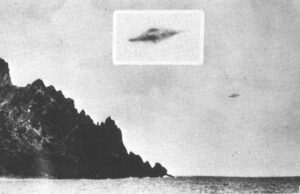How hard is physics compared to other subjects?
If you’re like me and better at memorizing than thinking logically, then you will probably find physics more challenging. Like others have said, physics, especially algebra-based physics, is more about the concepts than math. If you focus on the concepts and how to solve different "types" of problems, then you’ll be fine.
physics velocity formula derivation
What is velocity and how to calculate it?
Velocity refers to the rate of change of displacement with respect to time. Also, we calculate it using the velocity formula. It refers to the variation amidst the starting and ending position, which we divide by starting and ending time. Also, velocity has direction and magnitude. Furthermore, its unit for the measure is meters per second (m/s).
What is the derivative of velocity and acceleration?
The velocity function is the derivative of the position function. Acceleration is the second derivative of position (and hence also the derivative of velocity. What’s Next? More lessons coming soon. Varsity Tutors has a few example problems involving taking derivatives to find velocity.
What is a derivation in physics?
In Physics, it’s all about a better understanding of the basics. The derivation in physics defines the origination of some mathematical algorithm by understanding any physical phenomena. On this page, we will learn about the following:
physics formulas velocity acceleration time
How do you find acceleration from velocity and time?
Acceleration is change in velocity divided by time. Movement can be shown in distance-time and velocity-time graphs. You can calculate the acceleration of an object from its change in velocity and the time taken. Velocity is not exactly the same as speed. Velocity has a direction as well as a speed.
What is the formula for acceleration in physics?
The equation for acceleration can also be represented as: \[a = (v-u) \div t\] where: a is acceleration in m/s/s or m/s 2. v is final velocity in m/s. u is initial velocity in m/s. t is time in s
What is the acceleration of an object with a constant velocity?
Calculate the acceleration of the object moving with uniform velocity. When there is uniform velocity, the initial and final velocities are equal to V. The formula is as under: Average acceleration= change in velocity/ change in time. So, the acceleration of the object traveling at a constant velocity is zero.
What is the formula for calculating velocity?
Velocity Formula. Velocity is nothing but rate of change of the objects position as a function of time. Mathematical formula, the velocity equation will be velocity = distance / time.
physics speed formula acceleration
What is the formula for acceleration?
Here is the most common acceleration formula: a =. Δ v. Δ t. where Δ v is the change in velocity and Δ t is the change in time. You can also write the acceleration equation like this: a =. v ( f) − v ( i) t ( f) − t ( i)
What is the acceleration of a car at constant velocity?
The formula is as under: Average acceleration= change in velocity/ change in time. So, the acceleration of the object traveling at a constant velocity is zero. The speed of the car decreases from 75 km/h to rest in 30 seconds.



